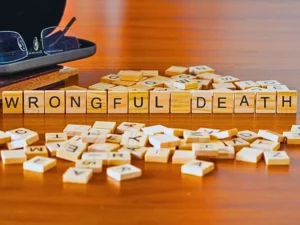When a landlord is negligent in maintaining or securing a property, tenants can pursue compensation for any injuries suffered as the result of the landlord’s negligence. In Illinois, landlords have a duty to their tenants to ensure their properties are properly maintained and any issues such as broken locks, leaking plumbing, etc. are promptly corrected. When landlords fail to maintain safe rental properties, tenants have the right to pursue personal injury claims against them.

Landlord Responsibility in Illinois
In Chicago, landlords must maintain their property in a manner that is compliant with the Chicago Municipal Code. Landlords are required to perform any and all repairs required to satisfy this obligation.
Under the code, non-compliance occurs when the landlord:
- Fails to maintain the structural integrity of the property or any part within their control within the structure.
- Fails to maintain floors to comply with any requirements related to safe-load bearing within the municipal code.
- Fails to properly maintain exits, the required number of exits, or fails to make sure that all exits are not blocked or otherwise inaccessible. This includes stairways, fire escapes, doorways, windows, etc.
- Fails to install and maintain smoke detectors, fire alarms, fire detectors, fire extinguishers, sprinkler systems, etc. as required by the municipal code.
- Fails to maintain elevators or stairs in good working condition.
- Fails to install or maintain a flush toilet, sink/bathtub, kitchen sink, and other necessary plumbing fixtures in good condition
Landlord negligence also occurs when the landlord fails to maintain HVAC systems and other gas-fired appliances or fails to provide adequate levels of hot water or heat as required by the municipal code. Landlords are also negligent when they fail to provide adequate hallway or stairway lighting or they fail to maintain the structure’s foundation, floors, walls, or roof in sound condition. Landlords must provide adequate ventilation and maintain electrical systems, including circuits, fuse boxes, outlets, and other electrical fixtures.
Types of Landlord Negligence
Landlords in Illinois are required to properly maintain and secure the property.
Negligent Security
This can include failing to maintain a security system, allowing a security monitoring contract to lapse, failure to install/maintain/replace door and window locks, and even failure to change security codes or retrieve keys provided to former tenants. It can also include a landlord’s failure to properly screen tenants to ensure they do not have a history of violent or criminal behavior that could cause harm to other tenants.
Failure to Maintain Property/Negligent Repairs
Landlords are required to ensure the property remains habitable throughout the duration of a tenant’s lease. This includes maintaining HVAC systems, plumbing systems, electrical systems, etc. It also involves maintaining the roof, replacing broken windows, and other damage that can damage a tenant’s personal possessions or cause a tenant physical harm.
Hazardous Conditions
Landlords are required to verify that a property does not contain toxic, potentially carcinogenic substances such as lead paint, asbestos insulation, etc.
In Illinois, tenants must notify a landlord of a deficiency within the property. For example, the tenant must notify the landlord that the plumbing is leaking, the electrical wires are sparking, the lights are out, etc. Once notified, landlords must act in a timely fashion to perform the repairs. Tenants in Illinois can pursue compensation for injuries under the doctrine of premises liability if:
- The landlord owed the tenant a duty to properly maintain the property,
- The landlord neglected this duty,
- And, the negligence of the landlord resulted in the injuries the plaintiff suffered.
Injuries Caused by Landlord Negligence
Landlords who fail to maintain their property can create conditions that are conducive for insect and rodent infestations. These infestations can cause bacterial infections, respiratory tract infections, and other injuries.
Failure to maintain electrical systems can cause electrocution or spark a fire, similarly, failure to maintain gas systems can result in fires or explosions. These critical systems are the landlord’s responsibility and when they fail to properly maintain them and perform prompt repairs, they negligently put their tenant’s health and safety at risk.
Landlords who fail to maintain lighting systems or flooring can create significant for tenants. These are some of the most common types of landlord negligence claims. Similarly, these risks increase when landlords fail to maintain flooring surfaces, masonry, concrete walkways, etc.
Other common injuries tenants can suffer as a result of landlord negligence include burn injuries, toxic inhalation, drowning, respiratory infections, etc. As with other personal injury claims, thorough documentation including communications with the landlord, medical records, physical therapy records, repair bills, etc. can all be used to support a plaintiff’s claim that the landlord’s negligence was the direct cause of the plaintiff’s injuries in Illinois.







